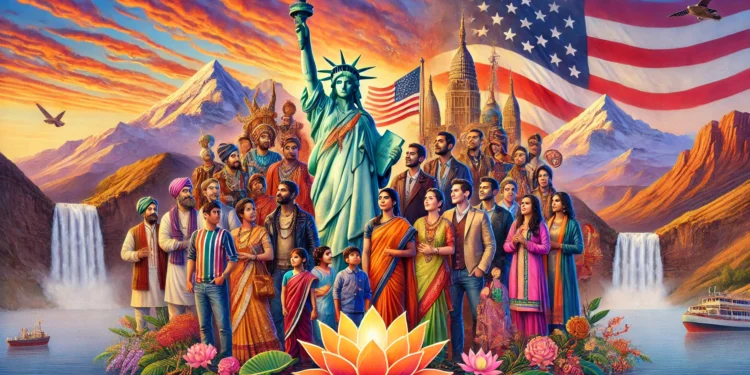The 2024 U.S. presidential election, culminating in Donald Trump’s victory, marks a profound shift of preference for the Hindu Americans and a broader global implication for the US international relations. The campaign and its outcome shed light on critical issues, including political, cultural, and strategic dynamics relevant to Hindus worldwide.
The rise of proud Hindu leaders like Tulsi Gabbard, Vivek Ramaswamy, and Usha Vance in the Republican power structure signaled a welcome shift and openness in Republican Party. These leaders articulate civilizational values while countering the “woke” anti-family narratives that clash with Hindu traditions of familial responsibility and meritocracy. Kamala Harris, despite her Indian heritage through her mother, has often distanced herself from Hindu identity, identifying primarily with her Black and Christian roots. Trump openly acknowledged the challenges faced by Hindus globally, including strong statements condemning attacks on Hindu minorities in Bangladesh. Harris, meanwhile, remained silent on such issues. Hindu Americans, recognizing this disparity, overwhelmingly supported Trump, with some reports stating 70% voting in his favor, a record-breaking shift from traditional Democratic support.
The farcical BAPS temple raids in New Jersey and California’s SB403 caste bill subterfuge targeting Hindus by the far left and Islamists who have infiltrated the Democratic Party alienated the Hindu community from the Democrats. Further, policies like fake DEI-driven quotas have undermined meritocracy, disproportionately impacting high-achieving Hindu students and professionals.
Trump’s strong stance on global issues such as Islamic extremism and support for the Jews and Hindus, the biggest victims of global terror factory, aligns closely with the geopolitical priorities of the Hindu diaspora. While Trump’s leadership is far from flawless, his consonance with the issues central to Hindus has solidified this historic shift.
Despite the strategic alignment, the Trump coalition also harbors elements that are inimical to Hindu Americans. The resurgence of right-wing white supremacist movements, emboldened under his leadership, poses a threat to Hindus. These groups often conflate non-Christian, non-white immigrants with threats to their flawed vision of American identity, fostering hostility that has historically manifested acts of violence and discrimination. In addition, the growing influence of Christian fundamentalists within Trump’s base raises concerns about targeted proselytization efforts and legislation that undermines the pluralistic ethos cherished by Hindus and enshrined in the US Constitution. For instance, aggressive conversion campaigns and anti-Hindu rhetoric often find support in these circles posing a threat to the Hindus.
The current shift towards Trump brings both opportunities and risks. We should pursue the incoming administration to advance our priorities, and parallelly reason with the Democrats to shed their hostility towards Hindu interests. While leveraging alliances for strategic gains, we must continue to assert independent Hindu identity and safeguard our interests in an ever-evolving political landscape. The US election outcome could be reversed in the future so we must always focus on Hindu interests and community we serve, and not be merely reduced to aligning with any political party.




![[ India Today ] Ohio senator JD Vance thanks wife, a Hindu, for helping him find Christian faith](https://hinduvishwa.org/wp-content/uploads/2024/06/us-senator-jd-vance-reveals-how-his-hindu-wife-usha-helped-him-find-his-christian-faith-image-re-272530504-16x9_0-120x86.webp)










